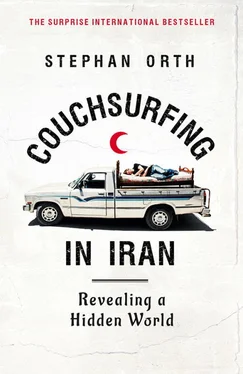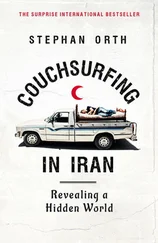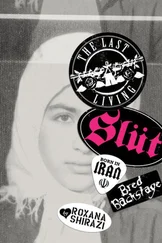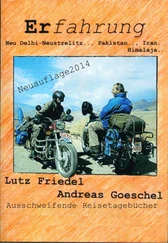“And when did he propose?”
“Before the first date, on Facebook. We met at an official function and then became Facebook friends.”
“Why are you in such a rush to get married?”
“When an Iranian woman lives alone, there’s a lot of gossip and rumors. I’m getting pressure from my family. I shouldn’t wait more than two years.”
“But then you can take your time.”
“Maybe he will lose interest.”
“If he’s serious about it, he can be patient for a couple months.”
I find it difficult to give good advice because as far as the meaning and concept of marriage is concerned I come from a different planet.
In Iran the bride becomes all but the possession of the groom in marriage. As compensation he is required to finance the mutual apartment, and in the case of divorce he is obliged to pay a handsome divorce dowry. According to civil law, this is “the price for the woman for sleeping with the man during married life, for running the household and for obeying him.” Without his permission she cannot even leave the house, let alone the country.
According to the law, if a man wants a divorce, he just has to say, “I divorce you” three times to his wife. A woman with the same intention needs a court and her husband’s signature. Subsequently, the man has the fundamental right to child custody. Prenup agreements that at least give some extra rights to women have become fashionable among young couples.
Anyway, remaining unmarried is not a solution, not only because of financial insecurity. The family and social pressures are strong, so very few women dare to stay single. Even those who are well educated and have top jobs, like Massi.
“You know that in Iran there are two weddings,” she explains. “The first takes place within the inner circle, and afterward both partners still live with their families but start looking at apartments and furniture. In the process they get to know each other for the first time, since there are few opportunities otherwise. If you get divorced before the proper, big wedding ceremony, then it’s not too dramatic. But it is still a divorce.”
The male perspective on the subject is supplied by a chance encounter on the way back to Ahmad. I’m waiting on the roadside for a cab when a young man asks me if I want a lift. He is twenty-three, studies electronic technology, and introduces himself as Arash. “We are the lost generation,” he says. “We have hardly any chance of a good job, and everything is getting more expensive. If I want to buy a house in a bad area, I have to work twenty years for it. For a house in a good area, one hundred years. To get married I have to own a bank.”
All that is missing is a statement from Sofia. We meet up the next day in the park next to the Zayanderud riverbed. She says that she doesn’t understand how Europeans can have children without marrying. “The commitment is missing, isn’t it? The man can do as he likes.” If, however, you sign a contract and have a huge party with all your friends, then it is a real commitment. She has had a number of dates that were arranged by her parents. Her father is a very devout man who works as a tour guide for groups of pilgrims visiting sacred Shiite sites in Iraq. “Once there was a guy where absolutely nothing clicked. He just babbled such dumb stuff, I couldn’t even look at him.” Talking about the right age for having dates with the opposite sex, she thinks that kids younger than twenty should not get into it yet—it must be the teacher in her: “It distracts them from their schoolwork.”
Once she almost stopped using the Couchsurfing portal because there was too much flirting. “At those meetings many people look for partners, and they try to persuade you to drink alcohol, put you under pressure, saying stuff like: ‘Oh, so you’re not a modern girl.’ But, in effect, no girls are really modern. You just have to see them at home. The next problem is that many people want to be ‘Western’ when it’s about parties and boys but not when it’s about discipline and punctuality. They just cherry-pick.”

DRUNK TO THE IMAM
ON THE HIGHWAYto the airport I feel pretty modern; I’ve just remembered that I still have a bottle of the best wine in western Iran in my backpack. Sofia’s uncle Akbar is behind the wheel (actually, he’s not her uncle, but in Iran a good friend from a generation above is often called “uncle”), next to him his wife, and behind her Sofia. He is an engineer and recently had a job offer from a telecommunication company called 3s Network in Irvine, California. In a few months he will emigrate to the U.S., and he’s happy to be able to practice a bit of English with me.
On his cell phone he has stored 120 questions that he can expect to be asked at the interview for his visa application in Tehran—and the answers. He knows almost all of them by heart, as shown by the following role-play in which I become the stern consulate official.
“Who interviewed you for the job, and how many interviews did you have?”
“I had three phone interviews with Mr. Hawkins.”
“How did you hear about the company?”
“The CEO is from Iran; he is a friend of my brother-in-law.”
“How do you know the company is real?”
“I talked to some employees, and I checked the website.”
“Why will you come back to Iran?”
“Because of my family.”
“Why do you want to change?”
“I will earn more money and learn more in my field.”
He explains that in Iran you won’t get rich from engineering. “Here I earn $350 a month, and in the U.S. more like $5,000.” He really wants to make it happen. Only a year ago he could say little more than “Hello” and “How are you?” Now he does nothing other than practice English with his private tutor. I wish him luck when I say my goodbyes.
“Pray for me at the shrine of Imam Reza in Mashhad,” says Sofia and shakes my hand. “Tell him that I want to go to Germany, and that he should make it happen.”
“Will do. You are the best dictator in this country,” I say.
I have an hour to wait before my flight to one of Islam’s most sacred cities. The wine has to go. In my mind I beg forgiveness from His Majesty Ehsan, prince and master wine-maker of Marivan. There are a thousand better places to relish the pleasures of a fruity 2013 vintage than the toilets of the Shahid Beheshti Airport in Isfahan. In two minutes I manage two thirds of the bottle; the rest I tip into the bowl. A mighty fine wine. I have to flush twice until there’s no more evidence of red. Now I just have to dispose of the bottle, pop some chewing gum into my mouth, and voila. I walk as straight as possible to the counter, and my drunken mind realizes that you just need to swap two letters to turn “check in” into “chicken.” I show my ticket and wait in line for the security controls.
From: Sofia Isfahan
Sorry I couldn’t have even a small hug with u @ airport in front of my friends U know maybe they find it strange;-) Was nice meeting u. U r so kind:)
To: Elaheh Mashhad
Hi elaheh, i m on my way now, i will arrive at the airport in around 3 hours. see you soon!
From: Elaheh Mashhad
My address is manouchehri st. call me when you get to the cab.
From: Massi Isfahan
Have a great rest of trip. please pray for me at imam reza shrine!:)
An announcement crackles through the loudspeakers: “Mister Stephan, please come to the information desk.” I’m not sure whether I heard the name correctly. Have I lost something? Passport and ticket are in my hands, so I don’t think so. Did the security cameras film me disposing of the bottle, and they have found traces of wine in the garbage? I decide not to go to the information desk. In the waiting room at the gate the announcement is repeated, but again it’s not really understandable. They must mean someone else. The wine is making me confused.
Читать дальше




![Stephan Orth - Behind Putin's Curtain - Friendships and Misadventures Inside Russia [aka Couchsurfing in Russia]](/books/415210/stephan-orth-behind-putin-s-curtain-friendships-a-thumb.webp)








